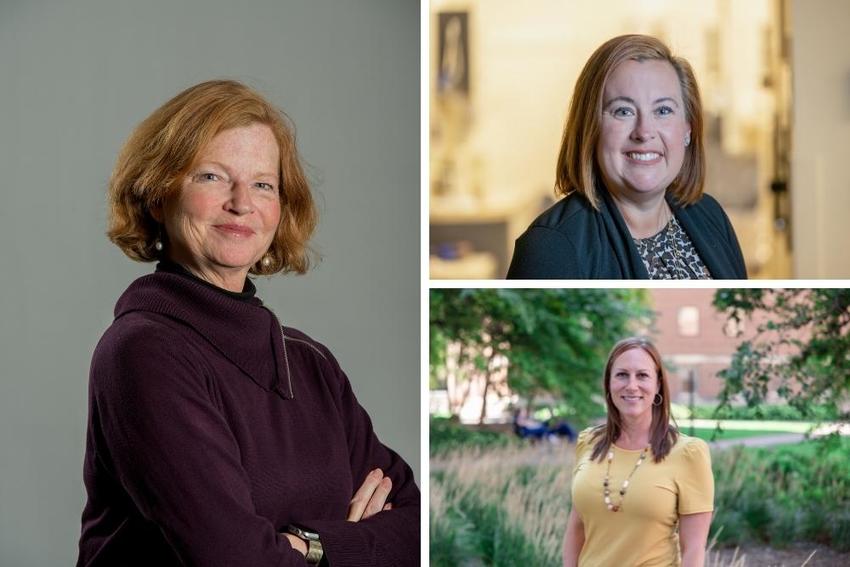Dental hygiene educators embrace lifelong learning with intensive research program

Three Dental Hygiene faculty are taking part in a clinical faculty development program to encourage their continued growth and success as educators, clinicians and researchers.
Priscilla Flynn, DrPH, associate professor of dental hygiene, Michelle Arnett, RDH, MS assistant professor of dental hygiene, and Yvette Reibel, EdD, RDH, clinical associate professor and clinical director in the Division of Dental Hygiene, enrolled in Harvard Medical School’s Foundations of Clinical Research Program. They began the program in May and will continue through November 2022.
“We all have research experience, but this program is for mid-career health professionals,” Flynn explained. “The program goes into greater depth and includes learning and biostatistics using STATA software.”
The certificate program is a six-month intensive, interactive program that trains health care professionals in epidemiology and biostatistics, making them better clinical researchers.
The three faculty members knew this would be a great opportunity for themselves and for the division. “I wanted to further develop my research skills to better support graduate dental hygiene students and the profession more generally,” Reibel explained. Meanwhile, Arnett explained that, “being on tenure-track, I am always seeking competitive programs to enhance my research knowledge and abilities.”
Reibel, Flynn and Arnett are excited to learn more about statistics, particularly the use of STATA software.
“I hope to further develop my foundational skills and knowledge gained in my graduate and doctorate programs, to aid me in research, especially clinical research as a dental hygienist,” Reibel said. “I am excited about the opportunity to add to the dental hygiene body of knowledge and act as a role model for lifelong learning. I hope that our undergraduate and graduate students, faculty and staff see the importance of continual learning and professional development in all stages of your career.”
For Flynn, much of the benefit of attending the program comes from her work with Master of Science in Dental Hygiene learners. “Creating a cohort of interested MSDH faculty would be a good way to ground us when conducting our own research, and for serving as thesis advisors,” she explained. “I’m hoping this program will create a foundation and a springboard to strengthen our research skills.”
Arnett agreed, sharing that, “I believe it is an important skill for principal investigators to be able to run their own data and understand statistical tests to interpret their research findings.”
Though the course just began, and much of the preliminary work is a review, the researchers appreciate the in-depth nature of the course and the integration of complex statistical applications with research design.
Most of all, the program has reminded each of the faculty members that learning is a journey that never ends for clinical and didactic instructors.
“Personally, I know I always have more to learn, regardless of my background in any particular field,” said Flynn. “Even though the study designs are very familiar to me, I am learning new ways to teach this information to my students. We can always learn something new from someone else.”
Arnett concurred, saying, “As a researcher and an educator, it is always important to seek learning opportunities to broaden my own knowledge and skill set, but also include it in my research and teaching. Being a dental hygiene professional is a commitment to lifelong learning.”
Similarly, for Reibel, “it is important to recognize areas that we can improve upon and be willing to continue learning. Lifelong learning is the cornerstone of the dental hygiene profession.”